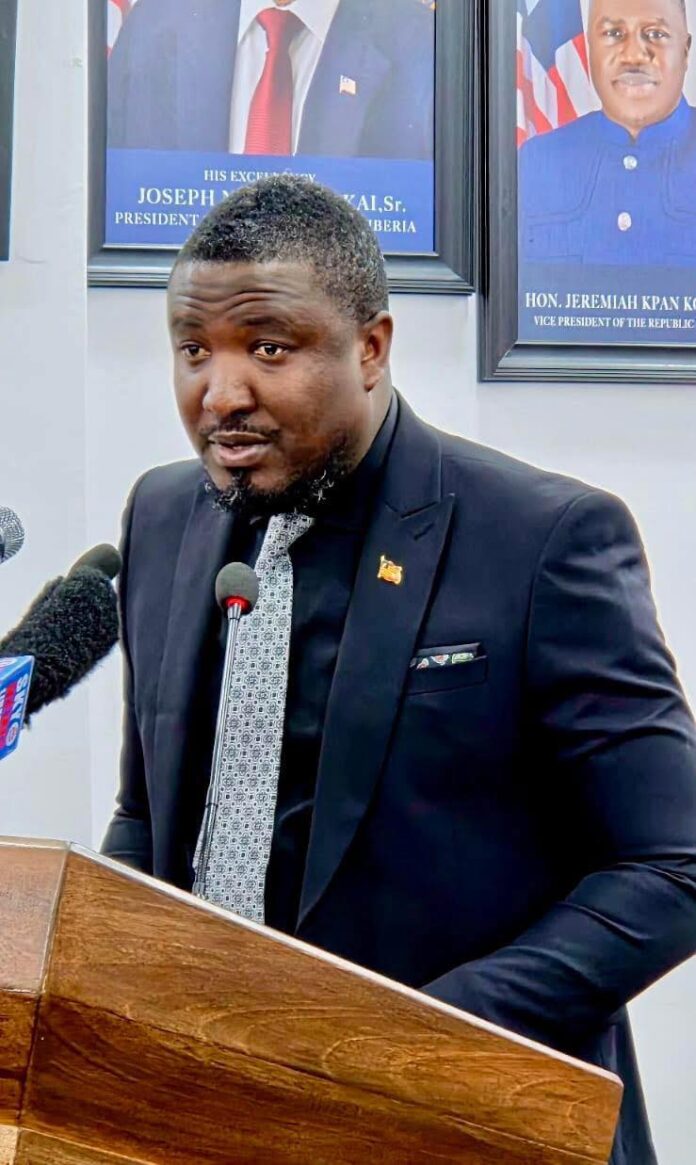A sharp political debate has emerged between Gbapolu County Senator Amara Konneh and Deputy Information Minister Daniel O. Sando following the aftermath of a recent public protest in Monrovia. While Senator Konneh offered a measured reflection on the state of Liberia’s governance and warned of a “silent majority” that may express discontent at the ballot box in 2029, Sando has responded with a strongly worded rebuttal, accusing the senator of hypocrisy, selective memory, and political manipulation.
Sando’s response, framed as a direct address to Senator Konneh, contends that the senator’s analysis of Liberia’s socio-political conditions is riddled with contradictions. “Your remarks, while framed as a call for reflection, are riddled with contradictions and deceptive rhetoric,” Sando asserted. “Your attempt to downplay the steady progress being accomplished by the government… is a thinly veiled political ploy.”
The Deputy Minister’s critique is layered and strategic. He not only questions Konneh’s credibility as a messenger of truth but also accuses him of employing the same partisan spin he claims to detest. Particularly biting is Sando’s reference to Konneh’s silence during the rule of the former Coalition for Democratic Change (CDC) government, led by President George Weah. “Where was your reverence for the truth when the CDC was in power?” Sando challenged.
A key point of contention lies in Konneh’s claim that Liberia had “stable macroeconomics before the 2023 elections.” Sando dismissed this assertion as revisionist, arguing that the Weah administration oversaw economic decline and rampant corruption. He labeled the CDC regime as “kakistocratic”—a government run by the least qualified—underscoring his view that it left behind a legacy of financial and institutional dysfunction.
Sando also took aim at what he described as misplaced praise for the recent protest. While Konneh emphasized the protest as a legitimate democratic expression—even if poorly attended—Sando insisted it lacked moral grounding and public trust. “The motives of the organizers are self-seeking and political,” he said, suggesting that former CDC figures like Mulbah Morlu, who once supported what they now criticize, cannot credibly mobilize national protest against a government “trying to clean the mess they created.”
In a broader defense of the Boakai administration, Sando acknowledged ongoing challenges but maintained that there has been “steady progress in key governance areas compared to [its] immediate predecessor.” He cited the conduct of security forces during the protest as evidence of improved democratic discipline under the Unity Party-led government, contrasting it with alleged past abuses.
Sando’s remarks culminated in a broader critique of protest culture in Liberian politics. Quoting a colleague, he suggested that many protests are less about social justice and more about political rebranding by discredited actors. “The act of politicians staging protests to rebrand themselves is an antiquated political stratagem that our people have come to understand,” he argued.
This exchange between a senior government communicator and a sitting senator reveals deeper undercurrents in Liberian politics: the battle over historical narrative, public perception, and political legitimacy. While Senator Konneh frames his position as a call for national introspection and truth-telling, Sando’s response serves as a forceful reminder that such commentary will not go unchallenged—especially when it appears to erase the failures of the past in favor of criticizing the present.
As Liberia continues to navigate post-election tensions, economic pressures, and governance reforms, the emerging dialogue between critics and defenders of the Boakai government will likely shape both policy direction and political alignments heading into 2029. What remains to be seen is whether this kind of political sparring will lead to constructive change or deepen partisan divides.



